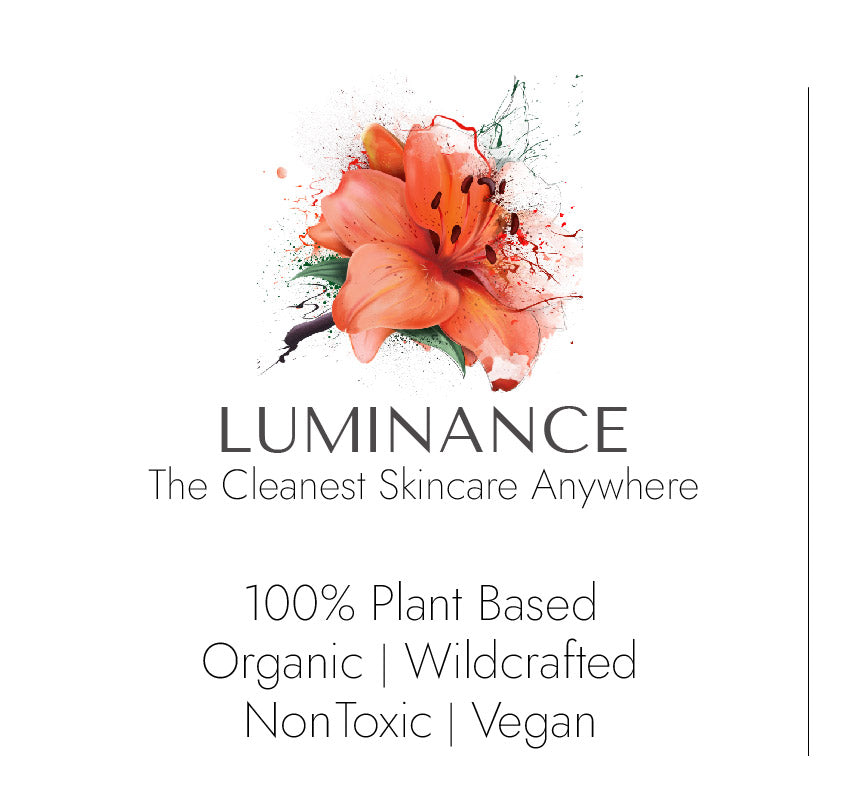Red Raspberry Seed Oil
Red Raspberry Seed Oil: A Natural Absorber of the Sun's Harmful Radiation

How Red Raspberry Seed Oil Works As A Sun Screen.
Unlike conventional metallic-based sunblocks, which operate by reflecting harmful UV rays off the skin's surface, Red Raspberry Seed Oil takes a different approach that doesn't harm your skin with excessive amounts of metals and other toxic ingredients. This unique oil acts as a natural absorber, soaking in the sun's dangerous radiation. In essence, rather than forming a physical shield on the skin's surface, the oil, with its intricate physical composition, neutralizes and dissipates the energy of these harmful rays within its structure before the harmful radiation is absorbed into your skin.
This distinction offers a more integrated form of protection, coupled with myriad skin-nourishing benefits.
Introduction:
The red raspberry (Rubus idaeus), indigenous to the cool climes of Northern Europe, is more than just a delightful treat. Historically rooted in medicinal applications, especially for its antioxidant prowess, the oil extracted from its seeds has now taken center stage in skincare. Cold-pressed to preserve its rich nutrient profile, Red Raspberry Seed Oil is celebrated not only for its skincare advantages but particularly for its profound UV protection attributes.
Components and Sun Protection Characteristics
-
UVA, UVB and UVC Protection:
- The star feature of Red Raspberry Seed Oil is its intrinsic ability to absorb a remarkable amount of UVA, UVB and UVC rays. UVB, particularly harmful, is known for causing sunburns and is a significant factor in skin cancer development. By naturally mitigating the effects of these harmful rays, the oil serves as an organic line of defense against sun-induced skin damage. However, while Red Raspberry Seed Oil offers considerable protection, if you have pale skin or are prone to skin cancer it's a good idea to pair it with a broad-spectrum sunscreen.
- And excessive perspiration can diminish it's effect so please remember to reapply after working out or for that matter any outdoor activity that causes you to sweat.
- Recommended usage is to reapply at least every two hours.
-
Fatty Acids Provide Protection Moisturization:
- Linoleic Acid (Omega-6) and Alpha-linolenic Acid (Omega-3): These components not only strengthen the skin's protective barrier but also aid in retaining moisture and defending against environmental stressors.
- Oleic Acid: This monounsaturated fatty acid imparts moisture, rejuvenating the skin to a supple and youthful state.
-
Antioxidants Help Protect And Repair From Sun Damage:
- Vitamin E: This vitamin doesn't just moisturize; it acts as a bulwark against free radicals and UV damage, further reinforcing the skin's sun defense mechanisms.
- Carotenoids: These precursors to vitamin A bolster the skin's defense against UV harm while promoting skin repair.
-
Ellagic Acid: This antioxidant-rich compound actively reduces collagen degradation and inflammation, playing a crucial role in maintaining skin vitality.
Additional Benefits for the Skin:
-
Anti-inflammatory: Its high content of alpha-linolenic acid gives the oil robust anti-inflammatory properties, ideal for conditions like rosacea, psoriasis, and eczema.
-
Anti-aging: By actively thwarting oxidative stress, especially through ellagic acid, skin is protected from premature aging, ensuring a radiant, youthful complexion.
-
Healing: The oil's unique composition expedites the healing of minor cuts and inflammations.
Here's A Simple Graphic Representation Of The Protection Provided By Red Raspberry Seed Oil
Note that at the 30 SPF position on the bottom horizontal axis corresponds to around a 97% blockage of UVB and while not shown identical blockage for UVA and UVC.

- X-Axis: SPF values (e.g., SPF 5, 10, 15, 20, ... 50)
- Y-Axis: Percentage of UV radiation blocked
You'd plot points for various SPF values (as found in various studies or sources) and their corresponding percentages of UV radiation blocked. For red raspberry seed oil, you'd have a specific point or bar indicating its estimated SPF value and the corresponding UV radiation blockage.
Interpreting the Graph:
-
Higher SPF = More UVB Protection: Typically, the higher the SPF value, the more UVB radiation is blocked. For example, SPF 30 blocks about 97% of UVB rays, while SPF 50 might block about 98% of UVB rays.
-
Red Raspberry Seed Oil Point: The position of red raspberry seed oil on the graph will give an idea of its protective capabilities in comparison to other SPF products. Red Raspberry Seed oil is found to block, for instance, 95% of UVB radiation, its position is close to the SPF 30 marker.
In Conclusion
Red Raspberry Seed Oil stands as a testament to nature's protective ingenuity. Its natural approach to sun defense, by absorbing rather than reflecting harmful rays, combined with its numerous skin benefits, makes it a worthy addition to daily skincare. While its sun protection capabilities are impressive, for holistic sun protection, it remains essential to complement its use with a broad-spectrum sunscreen.

